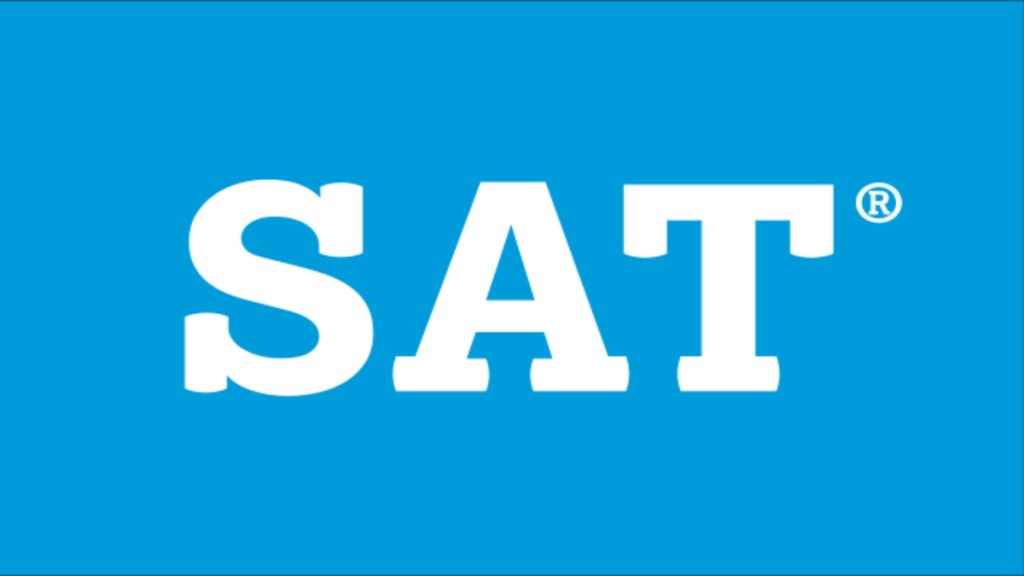By Nandika Handa
As I read the headlines announcing that Harvard and Caltech are going back to reinstating the S.A.T – my mind flashes back to 2020 when The University of California system declared that they would not be needing the S.A.T scores. By mid-June that year most Ivy leagues also declared that they would not require S.A.T scores. This led to a variety of emotions such as joy, elation, relief and even disappointment and uncertainty for what was to be expected in
What has changed between then and now? Why did universities declare they wouldn’t need the scores in the first place? Much of the context to all these developments lies in the dark and dreary years of Covid.
Whilst Covid struck all, young and old it posed different sorts of challenges. Students who found themselves applying during the time had to face a lot of adversities apart from the obvious and this caused a lot of additional stress, trials, and tribulations in what has been perceived as one of the most challenging times in recent history for them.
Whilst some students managed to plan, study and execute the exam despite the pandemic, a large number were struck by sufferings that were monetary, health related and stemmed from various other socio-economic causes at the time too.
With the further decline in economic activity, loss of jobs and other complications that arose – many could not take the test or do the necessary preparations that came as a precursor to the S.A.T.
It was in the midst the COVID conundrum that M.I.T also declared that they would again, suspend test requirements for the next year application cycle in 2021 and in extremely heartfelt words they communicated with the students to stay safe, take care of themselves, and know that their whole staff is there to support as everyone recovers together as a closing to one of their announcements to not needing the S.A.T in April 2021.
Several universities and schools such as Cornell, Columbia, Dartmouth, University of Pennsylvania and Brown also declared that they would not require the test results for the 2020 -2021 years too.
All these developments led to a lot of students from diverse backgrounds being able to apply. Consequently, the application numbers escalated, and competition heightened.
A good indicator is that during 2020, the “first Covid year” the applications to M.I.T went up by approx. 66%.
Consequently, across the board in the 2021 application year, approximately 51% of applicants gave in test scores along with their college applications. This was close to an approximate 27% decrease from students’ score submissions in 2019.
Some test experts stated that test-optional policies could assist in making universities more diverse, as they stated test-optional colleges in 2021 had vaster, comparatively academically sound, and more varied candidate pools.
In the recent past Brown University (2024-2025 admission cycle onwards), Dartmouth University (2024-2025 admission cycle onwards), Harvard University (2024-2025 admission cycle onwards) declared that they would require test scores and some others have also followed suit.
We now have a scenario where some universities and colleges might be heading back to asking for test scores and the idea of not necessarily having to take the test will have to be re-examined by many. The changeability and variables in the testing scenario have led to many questions in the mind of the test takers and parents alike.
A lot of students ask, does “test optional” mean that they don’t want S.A.T scores at all and won’t consider them? No, test optional universities such as N.Y.U (2024 -2025 and Princeton (both for 2024-2025 cycles) offer the student the liberty of choosing to take the test. If students would like to submit their scores that would be counted in the application, but for those who could not or did not want to take the test it would not go against their application.
Some schools however such as U. C Berkeley have declared themselves “test blind”. This means that campuses will not consider these scores in the applications.
There are also some like Cornell that will be “test-recommended” for students applying in 2024 to enrol for fall 2025. To put it simply submitting test scores is not a requirement for students applying in fall 2024 to enrol for fall 2025 but recommended for applicants to the College of Arts & Sciences; Cornell Engineering; College of Human Ecology. However, those applying to their College of Agriculture and Life Sciences; College of Architecture, Art, and Planning; and Cornell SC Johnson College of Business need not submit scores for fall 2025.
All these developments and the changing policies have left a lot of people pondering over how, and to what extent, test scores really impact one’s application, and will this amplify the competition with the numbers already being at an all-time high.
Amidst the discussions and questions on this ongoing situation – the heart-warming fact is that the US has a rich array of institutions providing options from big universities such as N.Y.U, U.C.L.A, Rochester University to smaller private colleges like Amherst, Swarthmore, Wellesley and they embrace diversity and are inclusive. Also, whilst test scores might count again for some institutions and are not required for others -The holistic approach of the system is what provides checks and balances to the uncertainties that may have arisen with the dynamic situation and led many to ask the question “To test or not to test?”
The author is an independent writer. She specializes in immigration, global education, and globalization. She is a Global College Placement Counsellor and has previously led an investment immigration firm. She is based between Bengaluru and Toronto.
Disclaimer: Views expressed are personal and do not reflect the official position or policy of Financial Express Online. Reproducing this content without permission is prohibited.















